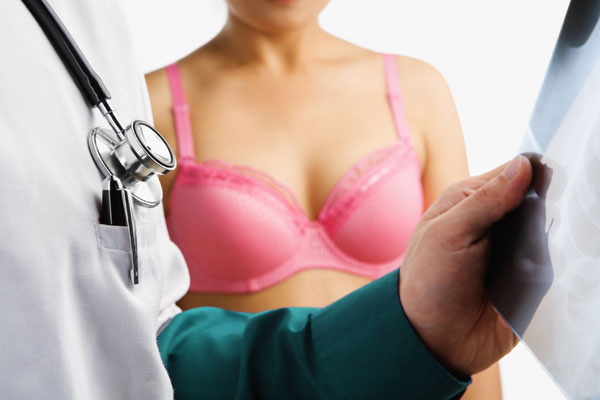Breast Cancer: What Raises Your Risk?

"The Healthy Geezer" answers questions about health and aging in his weekly column.
Question: Is breast cancer the leading cause of cancer death in women?
Answer: Breast cancer is second — behind lung cancer — as the leading cause of cancer death in women. The chance of developing invasive breast cancer at some time in a woman's life is about 1 in 8.
There are many risk factors for breast cancer.
The risk rises with age. About 77 percent of women with breast cancer are older than 50 when they are diagnosed.
Breast cancer risk is higher among women whose close relatives have the disease.
A woman with cancer in one breast is at high risk of developing a new cancer in either of her breasts.
Get the world’s most fascinating discoveries delivered straight to your inbox.
Women who started menstruating before age 12 or who went through menopause after age 55 have a slightly higher risk of breast cancer.
Having multiple pregnancies and becoming pregnant at an early age reduces breast cancer risk.
Long-term use of hormone replacement therapy (HRT) after menopause increases your risk of breast cancer.
Drinking alcohol is linked to an increased risk of developing breast cancer.
Obesity is a breast cancer risk, especially for women after menopause.
Evidence is growing that exercise reduces breast cancer risk.
Breast cancer can also strike men. Most men who get breast cancer are white and in their 60s. However, the disease is uncommon in men. It represents only 1 percent of all breast cancers. Because of its rarity, many men aren't aware it exists. And that’s a problem.
For unknown reasons, the incidence of male breast cancer has been increasing. About 2,000 men in the U.S. are diagnosed with breast cancer annually.
Some risk factors for male breast cancer are:
Age: The average age for a man diagnosed with breast cancer is 67.
Family: About 20 percent of men with breast cancer are related to someone with the disease.
Genes: About 7 percent of breast cancers in men are inherited.
Radiation: There's a higher risk to men who underwent chest radiation treatments when they were younger.
Klinefelter Syndrome: Men with this syndrome make lower levels of male hormones, called androgens, and more female hormones. This can cause gynecomastia, benign breast enlargement. Men with this condition may be at greater risk of breast cancer. Many medicines used to treat ulcers, high blood pressure, and heart failure can cause gynecomastia, too.
Estrogen: The risk is small for men who take the female hormone estrogen. Estrogen drugs may be used to treat prostate cancer.
Liver disease: This can increase your risk of gynecomastia and breast cancer.
Obesity: Fat cells convert androgens into estrogen.
Alcohol: Drinking alcohol raises the odds that a man will develop breast cancer. The risk increases with the amount of alcohol consumed.
If you would like to read more columns, you can order a copy of "How to be a Healthy Geezer" at www.healthygeezer.com.
All rights reserved © 2013 by Fred Cicetti
 Live Science Plus
Live Science Plus





